This blog post is part of Build Your Stack,® a new initiative focused exclusively on helping teachers build their book knowledge and their classroom libraries. This post was written by NCTE’s 2019 Community Ambassadors: Christina Nosek, Jessica Hunter, Jeremy Hyler, Lee Rutherford, Lindsay Schneider, Lisa Castillo, Michelle Rankins, and Shawn Towner.
During the August meeting in Chicago, NCTE’s newest Community Ambassadors met one another for the very first time, sharing classroom experiences that varied from coast to coast. The enthusiasm they all shared in talking about education, their students, and NCTE stems from a significant passion for literacy.
Together, they compiled a list of novels (and one short film) that have the potential to help you engage with your students in the classroom. For educators at all grade levels and especially for early career educators, our ambassadors hope these suggested works transform your classrooms as they have their own.
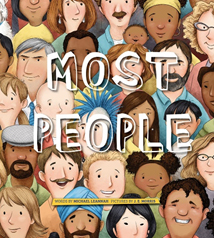
Christina Nosek
Most People
by Michael Leannah
El Paso, Dayton, and Gilroy in our own backyard. My fifth graders will be coming to school next week with these tragedies on their minds. To put it lightly, they are all aware that there are bad people in our world—really bad people who have intentions of causing harm.
As an educator, it is not my job to shield my students from this fact. It is not my job to hide the harsh realities of the world they live in. Rather, it is my job to support them in making sense of it. It is my job to also let them know that most people do not mean to cause us harm. The stunning portrait of humanity in picture book form, Most People, written by Michael Leannah and illustrated by Jennifer E. Morris will help me do just that.
“Sometimes the world can seem scary, it’s true. But most people are good people, just like you.” When you’re not sure how to help children see that there are, in fact, good people in the world, Most People has the power to support you in starting that conversation. I know it will support me.
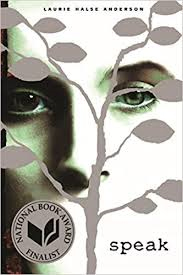
Jessica Hunter
Speak
by Laurie Halse Andersen
The First 10 Lies They Tell You in High School:
- We are here to help you.
- You will have enough time to get to your classes before the bell rings.
- The dress code will be enforced (this is half true because they enforce it only on the so-called “freaks” or “goths” etc.).
- Smoking is not allowed on school grounds.
- Our football team will win the championship this year.
- We expect more of you here.
- Guidance counselors are always available to listen.
- Your schedule was created with your needs in mind.
- Your locker combination is private.
- These will be the years you look back on fondly.
The Second 10 Lies They Tell You in High School:
- You will use Algebra in your adult lives.
- Driving to school is a privilege that can be taken away.
- Students must stay on campus for lunch.
- The new textbooks will arrive any day now.
- Colleges care about more than your SAT scores.
- We are enforcing the dress code (again, only on the “freaks” or “goths” etc.).
- We will figure out how to turn off the heat soon.
- Our bus drivers are highly trained professionals.
- There is nothing wrong with summer school.
- We want to hear what you have to say.
—from Speak
This is an incredibly powerful novel that should be read by everyone, especially teenagers. In this novel, we follow Melinda through her first year as a freshman in high school. After she called the cops during a summer break party, other students bully her and ostracize her. When we find out what really happened at that party, we follow Melinda on a journey of self-discovery and battles with depression and loneliness. The beauty and magic of Speak is that it is a brilliant tale of learning to use your voice when you previously believed it did not matter—a universal message.
Laurie Halse Anderson is an incredibly talented writer with a distinctive writing style; it’s an unfiltered stream of consciousness that is both genuine and authentic. Anderson also manages to capture the joys and pains of everyday high school life with honesty and raw emotion, and depicts interesting and relatable characters. I highly recommend this book for eighth and ninth grades and upper levels as well.
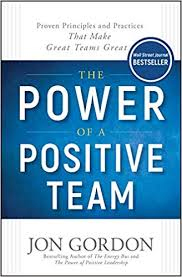 Jeremy Hyler
Jeremy Hyler
The Power of a Positive Team
by Jon Gordon
One of the best books for building relationships and team culture is Jon Gordon’s, The Power of a Positive Team. The book discusses ways to have tough conversations and build leadership with everyone on a team. What particularly stood out for me was how Gordon has the reader consider that in order for a team to have success, one must give up themself, do their job to the best of their ability, and do what is best for the team with their own strengths. Those who care are always willing to grow and never settle.
I highly recommend this book because it is not just about team dynamics, but about what an individual must do so they are helping the team succeed. This book forced me to take a look at myself and reflect on what I am currently doing and need to do as a leader and team member in my school. In order to achieve greatness, we must be willing to push ourselves and each other.
Shawn Towner
Ten Meter Tower, a Short Documentary
by Maximilien Van Aertryck and Axel Danielson
When I tell my classes that we’re going to watch a movie on one of the first days of the new school year, there is invariably some excitement. When I tell them that the movie is a 15-minute Swedish documentary and that they’ll have to read subtitles, the excitement invariably wanes.
The movie I show is Ten Meter Tower, directed by Maximilien Van Aertryck and Axel Danielson. The film documents people climbing up a 10-meter diving platform and grappling with the choice to either jump off into the pool below or to climb back down.
I like to open the year with this film for two reasons. First, I use the film as an opportunity for us to practice writing and thinking about a text. I ask students to collaboratively write about what happens in the film. Then I ask them to write what the film is about. We can use these responses to the film to discuss the differences between summary and interpretation/analysis.
Second, I want my classes to understand that the texts that we study in class will go beyond just words on a page. Yes, we’ll read poetry and stories and novels and plays, but we will also study films, infographics, political cartoons, and podcasts. By showing a short documentary in the first week of class, I hope to establish a classroom environment where we can write and think about a variety of different texts.
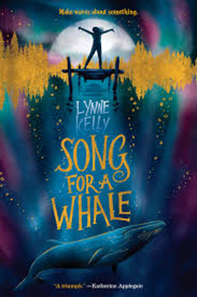
Lee Rutherford
One Song for a Whale
by Lynne Kelly
One Song for a Whale is a book that everyone can connect to! This is a book of struggle, hope, and finding one’s voice. A whale struggles to communicate with other whales and find a pod where he belongs because he sings at a different frequency. Our young protagonist is a deaf girl who becomes invested in helping the whale find his voice, allowing him to connect to others and find community. This story is touching, inspiring, and one that will stick with you forever. It gives us all hope that in spaces where we feel lost and alone, we can still find our voice with a little help from friends. This book also leads to great connections to nonfiction reads about the various ways animals and people communicate. A great addition to any classroom!
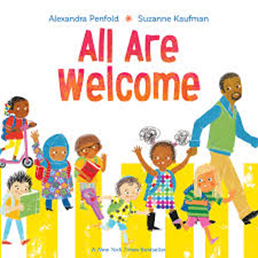 Lisa Castillo
Lisa Castillo
All Are Welcome
by Alexandra Penfold & Suzanne Kaufman
In today’s world of condemning our differences rather than celebrating them, All Are Welcome is a comforting book to read to our students on the first day to let them know that our schools will be a safe and welcoming place for everyone!
The book was originally inspired by a poster that illustrator Suzanne Kaufman drew of the diversity she saw at her daughter’s school. Kaufman wanted to celebrate and showcase this diversity so that all the students would feel welcome at Kimball Elementary. Alexandra Penfold was inspired to write an accompanying story to this initial illustration.
All Are Welcome follows children throughout their day: we see how their differences—whether in their play, their stories, their lunches, their talents—are celebrated and positively acknowledged. This is an uplifting story that honors students’ diversity as their strength, and presents school as a shelter from adversity. All are welcome there.
Aside from the affirming story, the book jacket is a replica of the original poster, and can also be displayed and shared to welcome everyone in our schools!
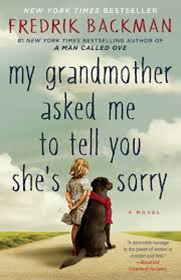 Lindsay Schneider
Lindsay Schneider
My Grandmother Asked Me to Tell You She’s Sorry
by Fredrik Backman
As we embark on a new school year, the need for stories that explore the complexity of human nature, the value of individual differences, and our interconnectedness is paramount. Fredrick Backmans’ My Grandmother Asked Me to Tell You She’s Sorry does just that while sparking heartbreak and joy in each chapter. In the wake of the death of her grandmother, who was her only friend, seven-year-old Elsa discovers a series of lettersinstructing Elsa to apologize to those her grandmother had hurt. Alongside Elsa, readers will come to love an endearing cast of misfits and learn how, even when our world is at its darkest and most disparaging, we can create our own fairytale kingdom. As you meet new students who are searching for their own fairy tales, superheroes, and kindred communities, educators will be enraptured by this novel and how it develops empathy and imagination.
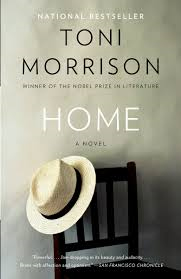 Michelle Rankins
Michelle Rankins
Home
by Toni Morrison
Frank Money and his sister Cee are profoundly lost, divided from each other and from themselves as they search for direction and hope in 1950s America. Frank joined the army to escape the racism of the Jim Crow south leaving behind his cherished and fragile sister. When he returns to home after the war, he is haunted by memories of his childhood in Georgia and the horrors he witnessed abroad; it is only when he hears that Cee is in danger that his life regains the sense of purpose he had lost.
To learn more about our NCTE Community Ambassadors, visit NCTE Village.

